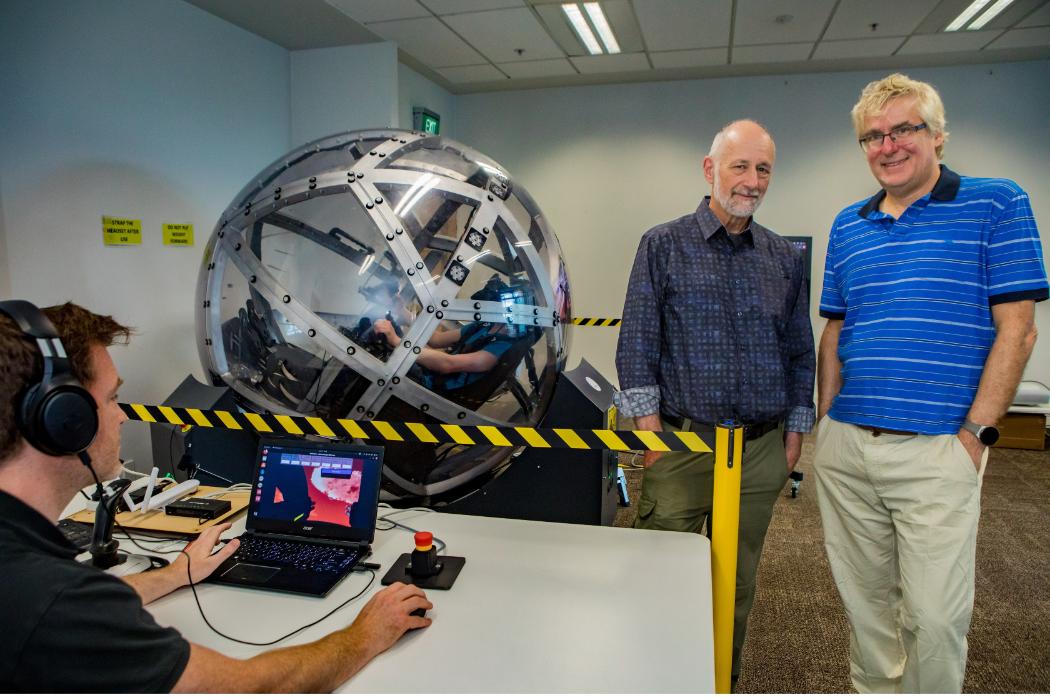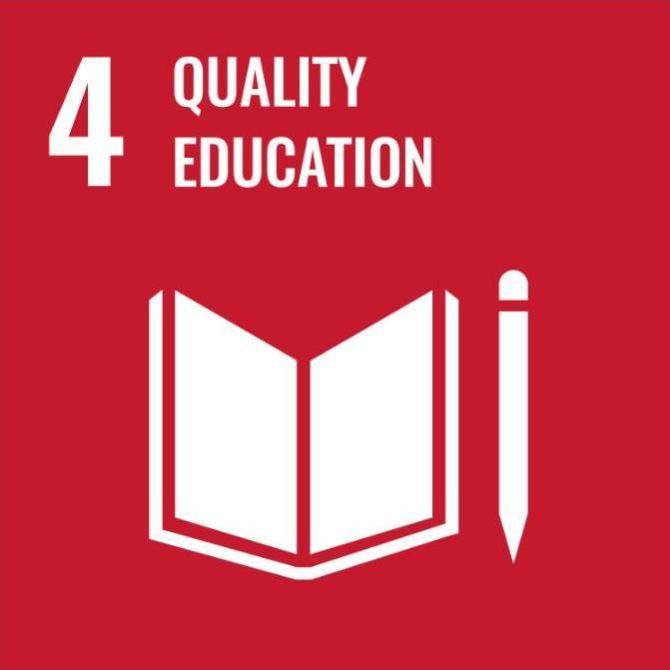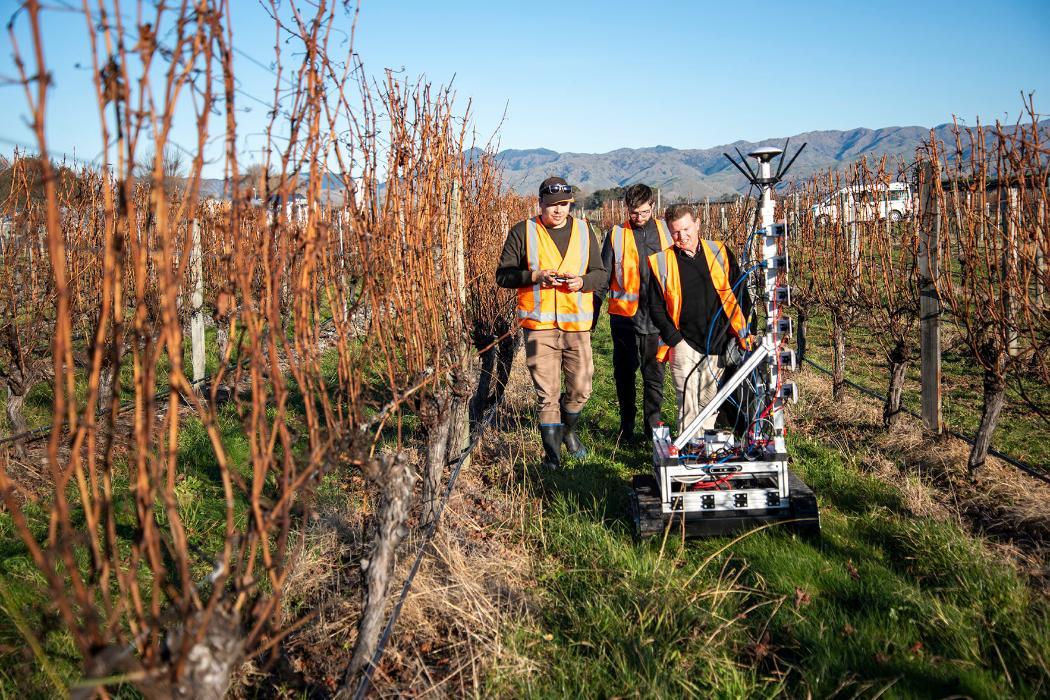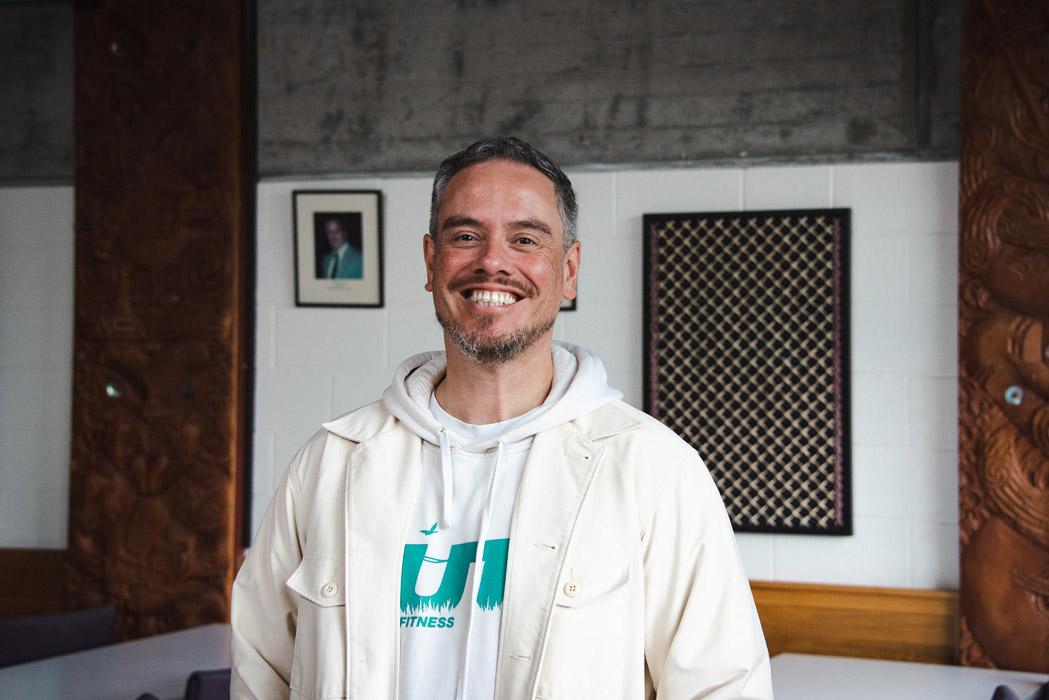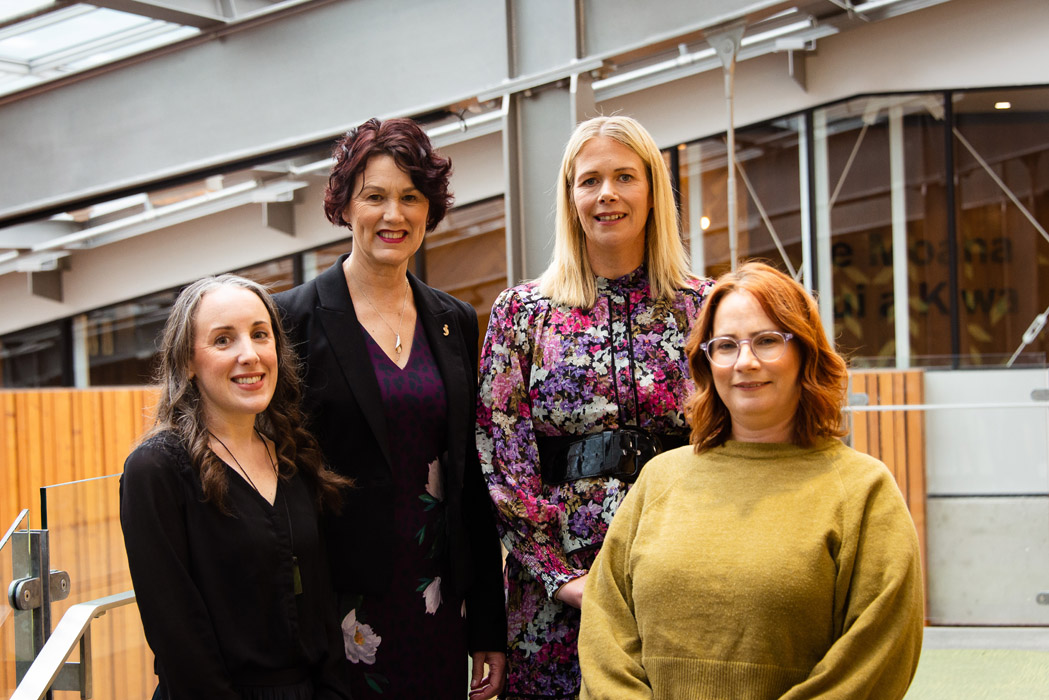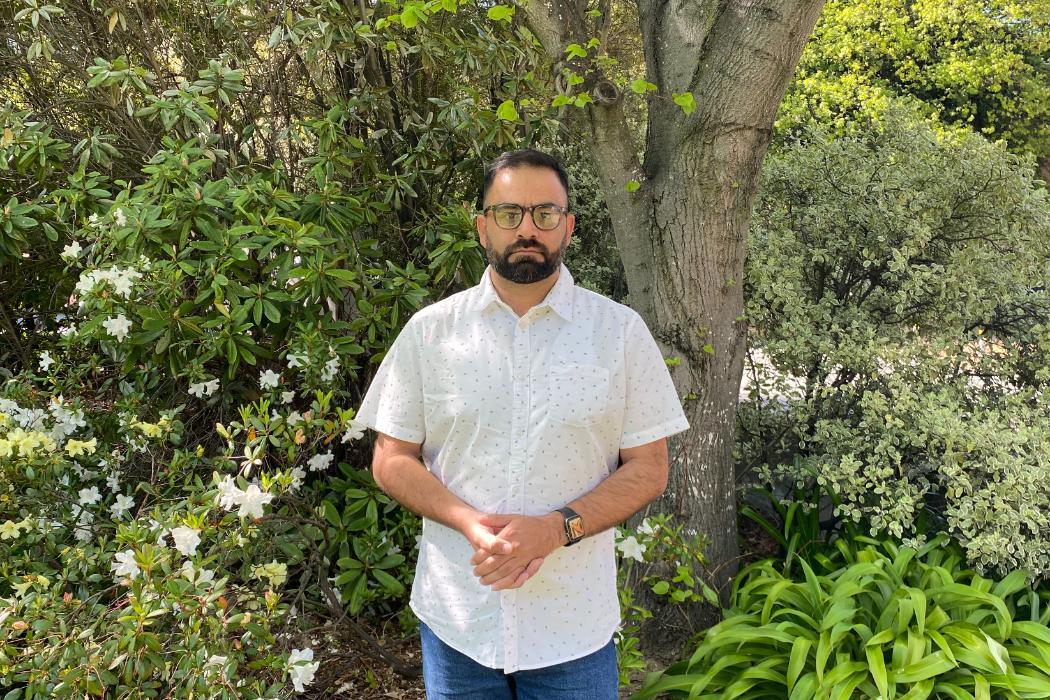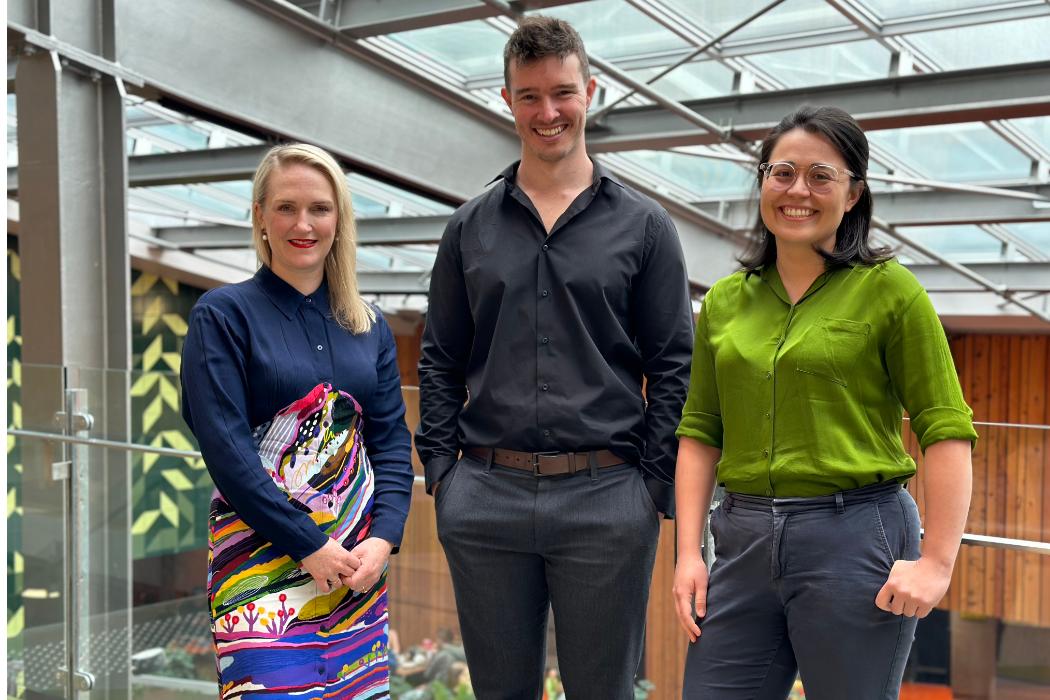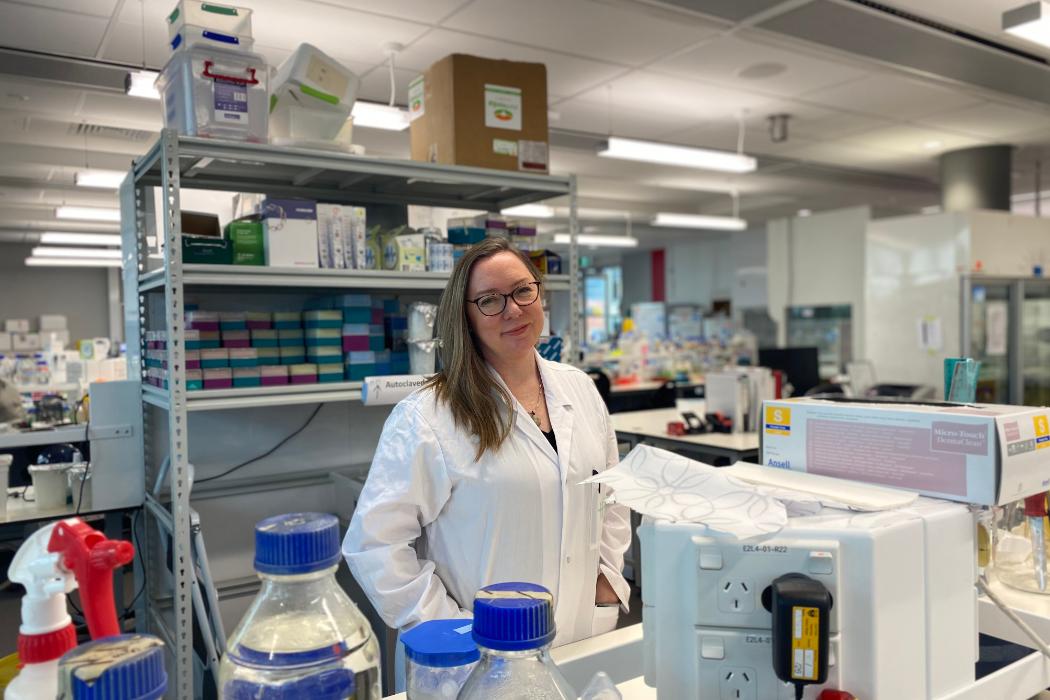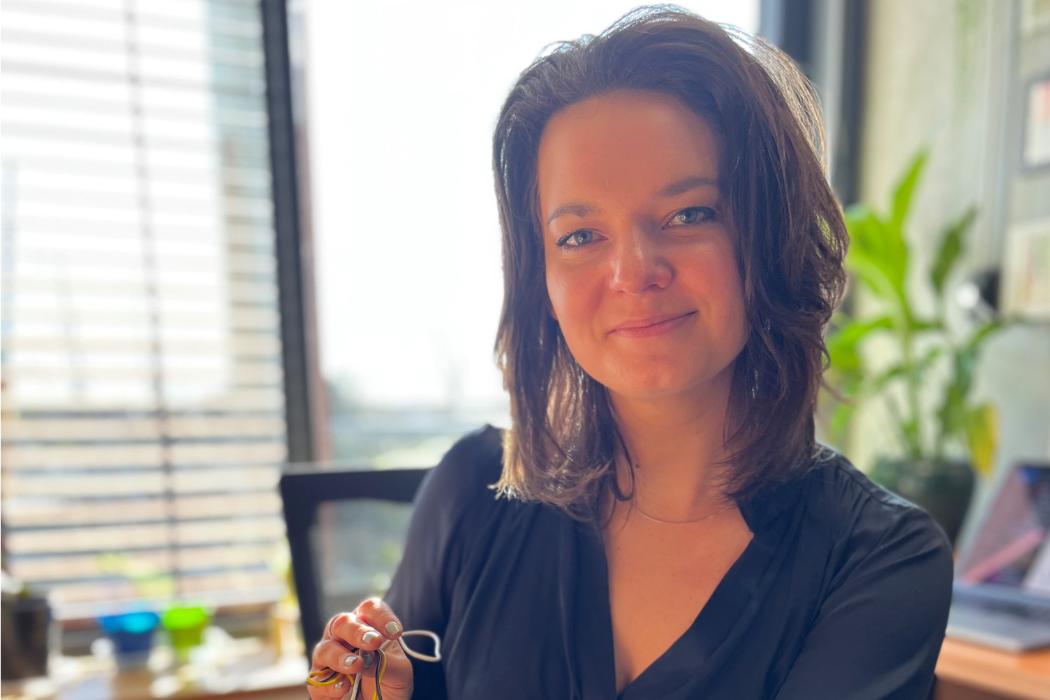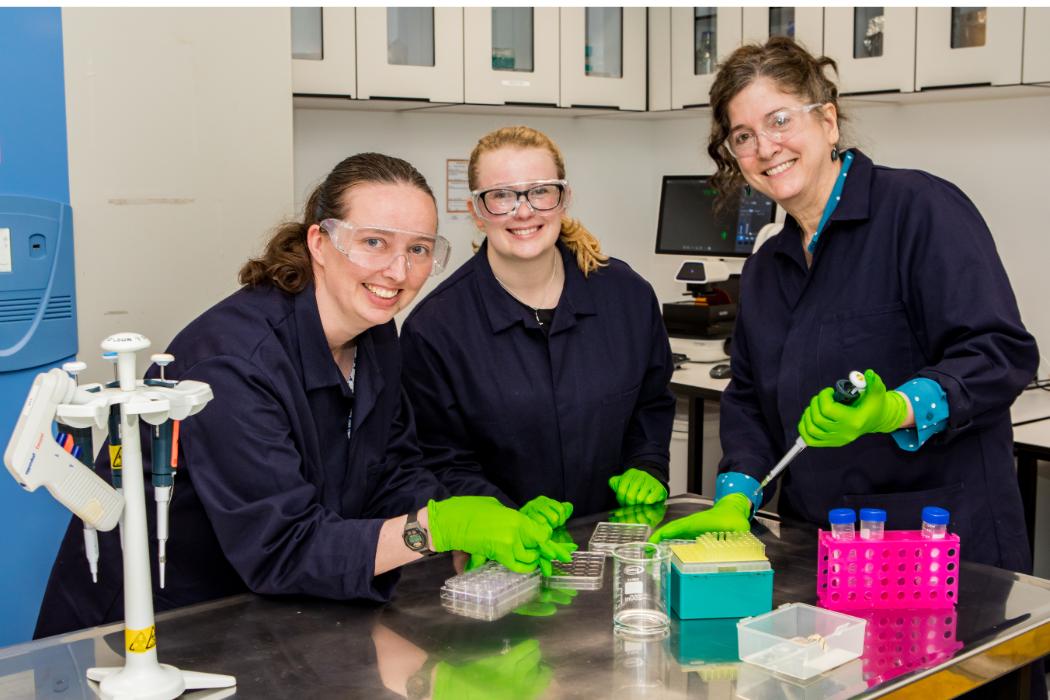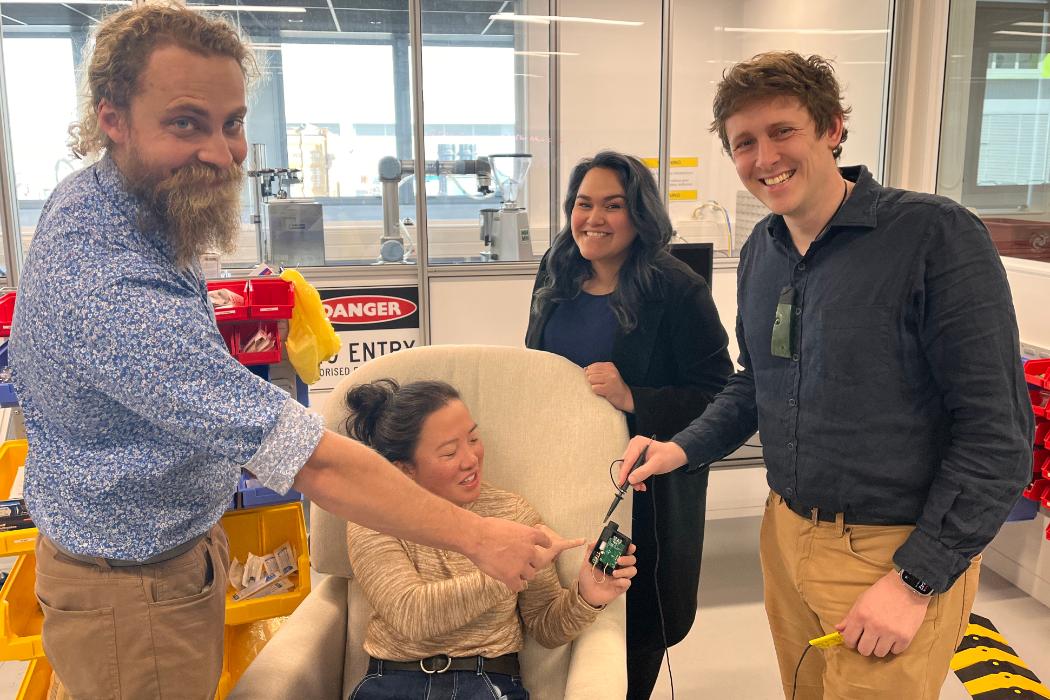They have received Te Pūtea Rangahau a Marsden funding of $870,000 over three years to explore these fundamental questions about human perception.
“If algebraic structure is inherent in our perception, we should have an ability to learn how to navigate in curved spaces,” Professor Grace says. “Our hypothesis predicts that people can do this, which would show that they can acquire the spatial intuition associated with a novel geometry.”
For the Marsden-funded project, the research team will be testing their hypothesis using immersive virtual reality (VR) technology at the University’s Human Interface Technology Lab (HIT Lab NZ).
The lab’s cutting-edge VR technology allows for 3D motion sensation allowing people to directly experience non-Euclidean, or curved, spaces where the internal angles of triangles add to more, or less, than the usual 180 degrees, but where the geometry is still algebraically consistent.
“We will have two postdoctoral fellows working with us on this interdisciplinary project,” Professor Grace says. “One has a master’s degree in Mathematics and is about to complete a PhD in Psychology, while the other has just completed her PhD in Psychology and has a Masters in Philosophy. Another UC graduate, Dr Matt Ward, who did his PhD in the HIT Lab, will carry out the software development for us.”
Preparation for the research has been underway for some time, including pilot testing at the HIT Lab ahead of the project launch in April 2023. Around 120 people will be recruited to take part in various experiments, following familiarisation sessions. In some experiments, the participants will walk on an omnidirectional treadmill or in a safe gym space while under supervision and wearing a VR headset.
“These experiments, while not in fully 3D curved space, will enable people to learn and get used to VR which can be disorientating if you haven’t experienced it before,” Professor Grace says. “We can also make space fully curved in VR using a 360 degree virtual reality ball - called the NOVA - that will give people the experience of flying through a 3D virtual environment.”
He says this research could not have been done in the past, as VR technology is required to simulate curved spaces.
“Our project brings together previous research on psychology and spatial navigation with computer science using the HIT Lab’s world-leading technology to ask a fundamental question about how we represent space – are we hardwired for a Euclidian world or is our representation of space flexible?”
